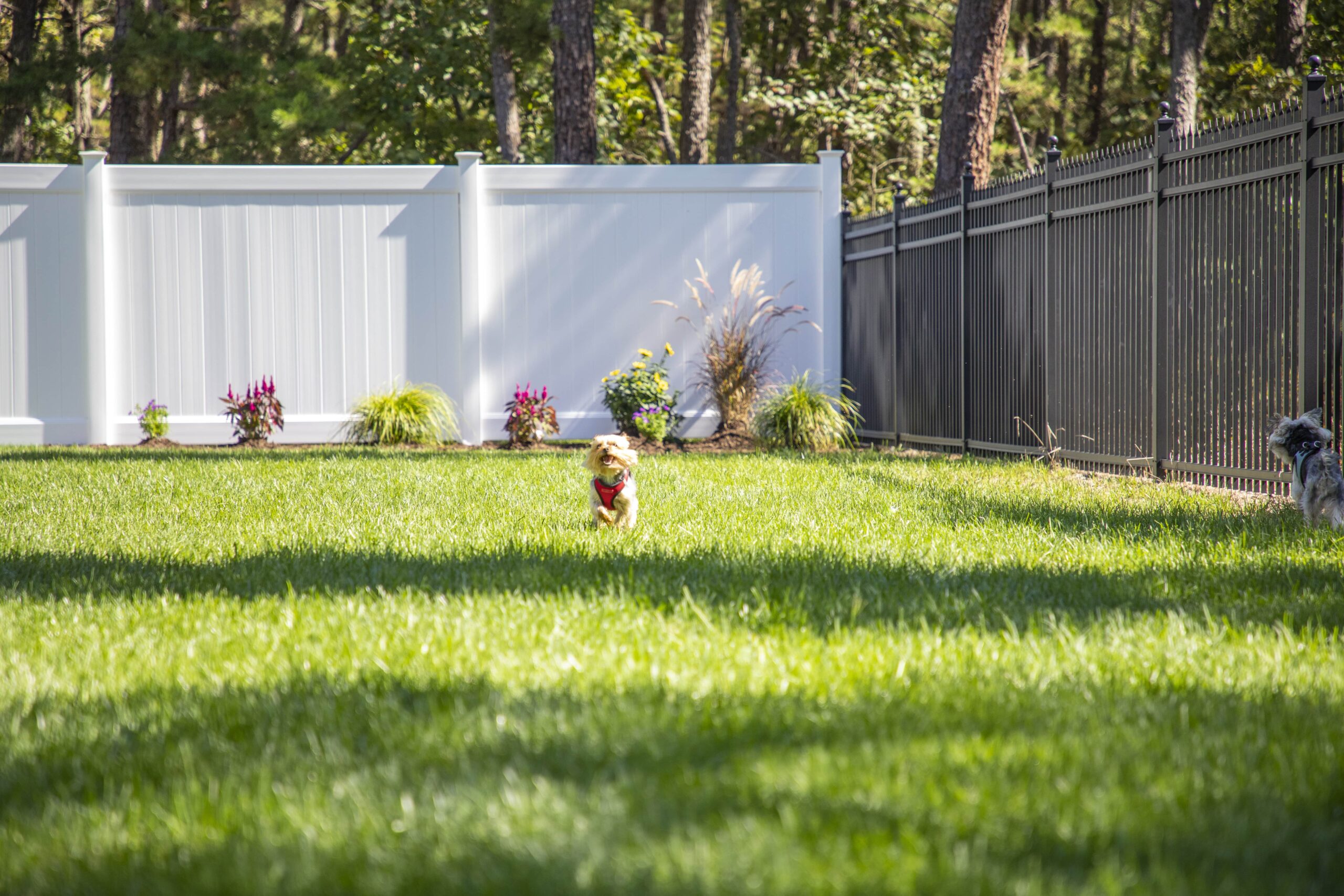All Categories
Featured

When installing a fence, selecting the right material is crucial to stabilizing functionality, aesthetic appeals, and spending plan. Wood, vinyl, and aluminum are among one of the most commonly chosen fence products, each with its downsides and toughness. This guide discovers the advantages and disadvantages of these choices to assist you make an educated decision.

Timber Secure Fencing. Pros:. Natural Elegance: Wood's timeless charm can enhance any type of property with its timeless and cozy appearance. Personalized: You can paint, tarnish, or sculpt timber to fit your style preferences. Budget friendly: Timber fence is originally extra budget-friendly contrasted to some other products. Ecologically Friendly: As a renewable energy, timber is biodegradable and usually thought about environment-friendly. Disadvantages:. Maintenance-Intensive: Routine sealing, painting, or discoloration is called for to stop damages from weather condition and insects. Prone to Degeneration: Without appropriate treatment, wood can rot, warp, or crack over time. Shorter Lifespan: Usually, wood fencings last 10-15 years, depending on the sort of wood and maintenance. Timber is a fantastic choice for those who value aesthetic appeals and agree to invest in routine upkeep to protect its appearance and longevity.
Plastic Secure Fencing. Pros:. Low Upkeep: Vinyl requires marginal treatment-- just occasional cleansing with soap and water. Climate Resistant: It does not warp, rot, or give in to insect damage, making it very long lasting in various climates. Durability: Vinyl fences can last 20-30 years with little to no repair work. Design Variety: Available in a large range of designs, textures, and shades, consisting of wood-like looks. Disadvantages:. Greater Initial Price: Plastic fences are much more costly ahead of time contrasted to timber. Vulnerability to Cold: In incredibly cool weather, vinyl can become weak and susceptible to fracturing. Minimal Repair Options: Matching substitute panels can be testing if damage happens. Vinyl fencing is optimal for house owners looking for a resilient, low-maintenance remedy that supplies modern convenience.

Light Weight Aluminum Fence. Pros:. Rust-Proof: Aluminum withstands deterioration, making it an outstanding option for wet or moist atmospheres. Long lasting: Regardless of being light-weight, light weight aluminum is solid and can withstand extreme weather. Low Maintenance: It needs very little maintenance, usually just periodic cleansing. Long Life expectancy: Light weight aluminum fencings can last years without considerable degeneration. Classy Layout: Often made use of for decorative purposes, aluminum fence adds a streamlined, innovative aim to properties. Disadvantages:. High Initial Investment: Light weight aluminum fences are amongst the costlier alternatives on the market. Less Privacy: The open designs usual with aluminum fencing don't provide much privacy. Vulnerable to Damages: While resilient, light weight aluminum can damage if struck with sufficient force. Aluminum is an excellent selection for homeowners prioritizing looks and sturdiness without needing much upkeep.
Making Your Choice. When choosing in between aluminum, plastic, or timber fence, consider your priorities:
Wood matches those that appreciate an all-natural appearance and don't mind placing in upkeep effort. Plastic is the most effective alternative for those looking for a low-maintenance, weather-resistant solution. Light weight aluminum offers sleek design and lasting resilience however may lack personal privacy. By very carefully evaluating these materials' functions, you can pick a fence that matches your property while meeting your useful and visual needs.
Latest Posts
Elegant, Long Lasting Floor Tile Flooring for each Room
Published Apr 21, 25
2 min read
Discover the Certified Mechanics Behind Montclare Auto Repair - Your Trusted Team
Published Apr 21, 25
2 min read
Cost Effective High-end: Discover the Perks of Laminate Floor Covering
Published Apr 20, 25
1 min read
More
Latest Posts
Elegant, Long Lasting Floor Tile Flooring for each Room
Published Apr 21, 25
2 min read
Discover the Certified Mechanics Behind Montclare Auto Repair - Your Trusted Team
Published Apr 21, 25
2 min read
Cost Effective High-end: Discover the Perks of Laminate Floor Covering
Published Apr 20, 25
1 min read